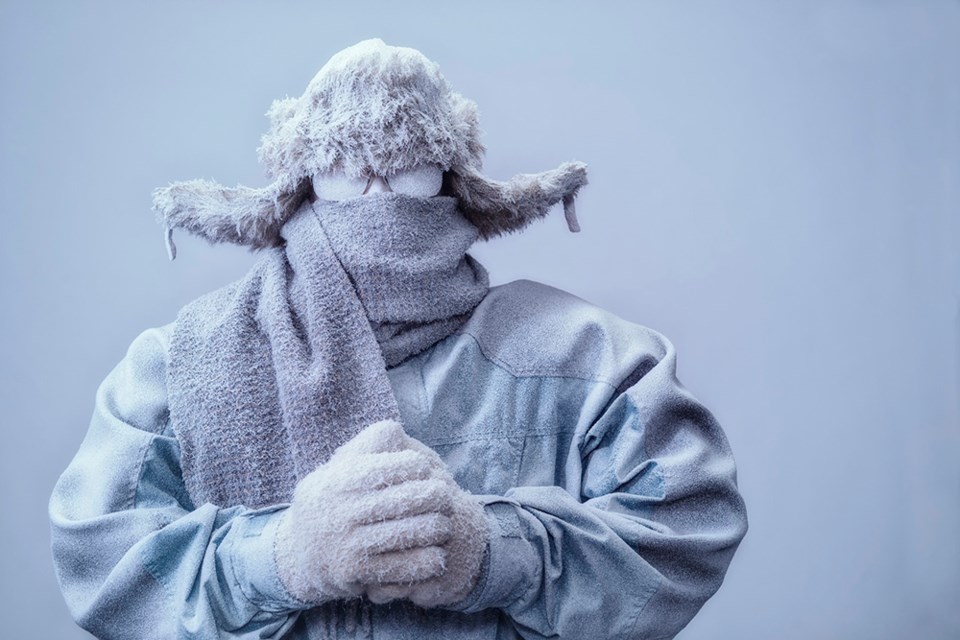BC Hydro set a new record for peak hourly electricity demand Dec. 19 as freezing temperatures descended on the province.
Between 5 and 6 p.m., preliminary analysis found consumption reached over 10,800 megawatts – the highest ever recorded. That beats the record from Dec. 27, 2021 when consumption reached 10,762 megawatts. The utility said the spike in electricity use was driven by additional heating requirements.
“With more sub-zero temperatures in the coming days, BC Hydro expects demand will remain high and there is the potential to see this latest record fall before the cold snap ends,” BC Hydro spokesperson Susie Rieder said.
Rieder said BC Hydro's system is capable of meeting electricity demands for the winter.
For Vancouver and Victoria, weather forecasts show freezing temperatures and snow will continue through Thursday.
The province’s north will see especially bitter cold in the coming days, with extreme cold alerts already issued.
Temperatures dropped to minus 40 degrees Celsius in Prince George, and feel to minus 54 C with the wind chill factored in. Dawson Creek temperatures were expected to hit minus 39 C Thursday evening, rising to a balmy minus 15 C by Christmas.
Further south, Kelowna could drop to a low of minus 28 C Wednesday before warming over the weekend. The West Kootenay, meanwhile, is expected to experience temperatures of minus 16 C Thursday.
Residential electricity use is typically at its highest in the colder, darker winter months, which can lead to higher costs for some customers. BC Hydro is reminding customers there are many ways to reduce electricity use this winter.
Managing home heating can have the biggest impact on usage. That can include turning down the heat when no one is home or when everyone is sleeping. The utility suggests installing a programmable thermostat to automatically adjust temperatures at different times based on your household’s activities. BC Hydro recommends the following temperatures:
- 16 degrees Celsius when sleeping or away from home;
- 21 degrees Celsius when relaxing, watching TV, and;
- 18 degrees Celsius when doing housework or cleaning.
Further, BC Hydro recommends not cranking up the thermostat, as it will not heat the home up faster than turning it up a degree or two at a time.
Keeping windows covered with blinds and drapes for an extra layer of window insulation can preserve heat.
“Window coverings can be a quick and cost-effective way to cut heat loss and block cold drafts,” the utility said.
Another way to reduce heat loss is to draft-proof your home, said BC Hydro.
“Use caulking and weather stripping to seal gaps and cracks around doors, windows and outlets to prevent heat from leaking out and cold air from coming in,” the utility said.
Fears of winter
In November, BC Hydro released a report saying British Columbians didn't feel ready or what to expect as winter approached.
A report released Nov. 4 titled found almost half of British Columbians already feel fatigued as the winter storm clouds began to gather.
“This year, sa国际传媒 is facing potentially critical storm conditions again due to drought-weakened vegetation from unusual weather – a rainy early summer that turned into an extended dry fall,” the report said.
Heatwaves
It’s not just winter that has seen BC Hydro consumption records smashed.
In 2021, the year of the heat dome and atmospheric rivers, BC Hydro experienced 19 of its top 25 all-time summer , including breaking its all-time summer peak hourly demand record at 8,568 megawatts.
Compared to summer 2017, summer 2021's peak hourly demand increased by about 13 per cent.



